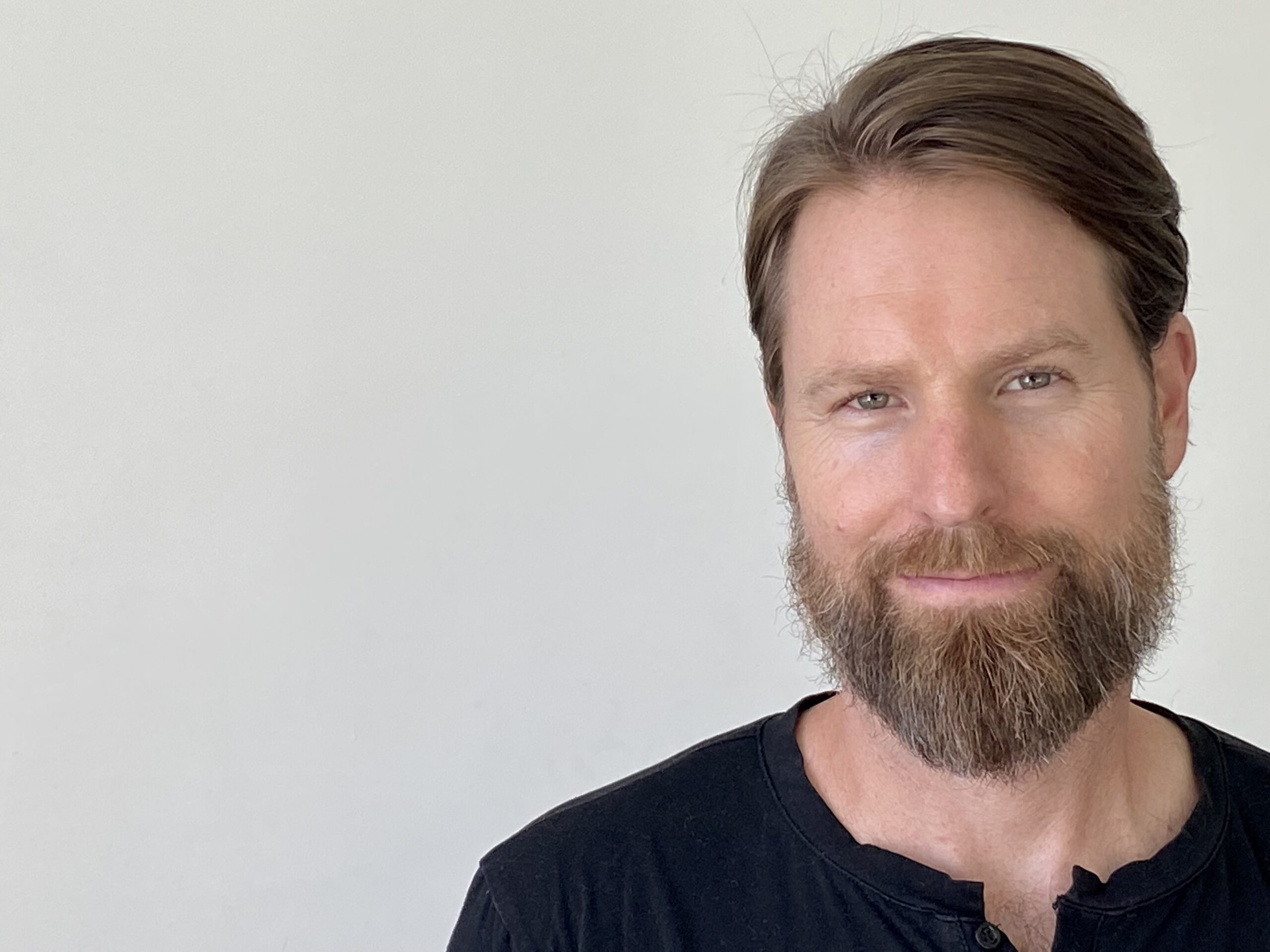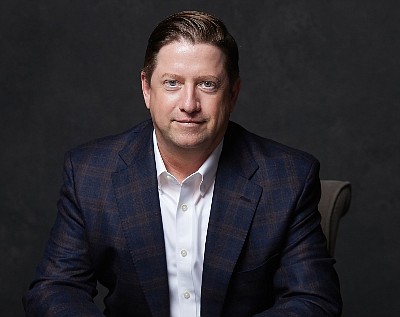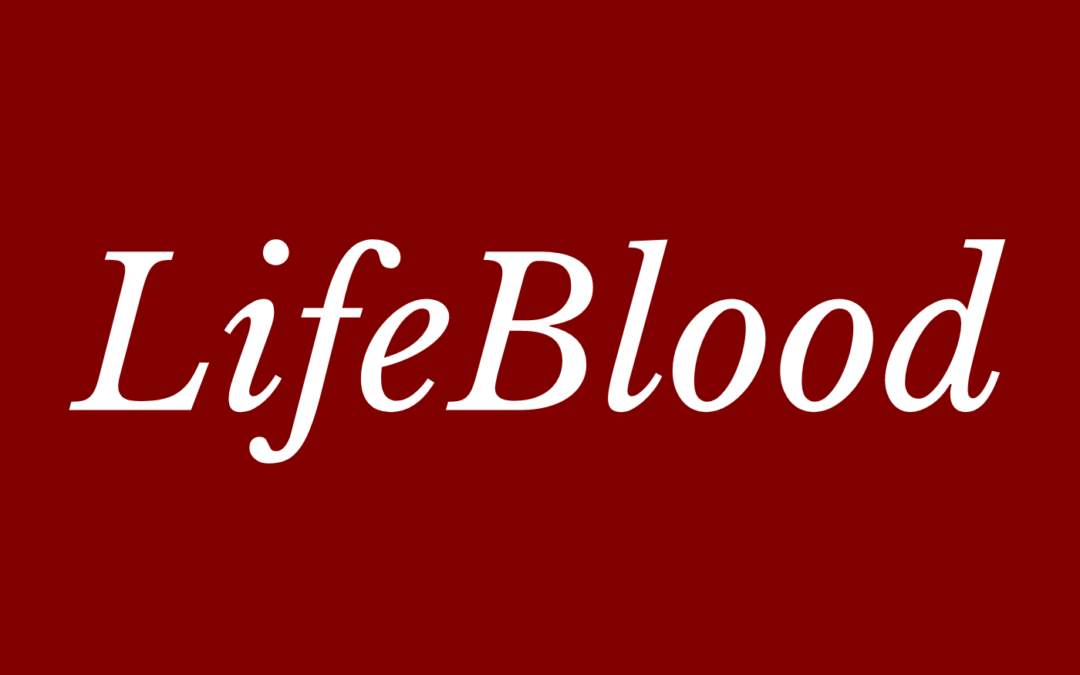Book Club featuring Adam Coffey
Our monthly Book Club features Adam Coffey and his book The Exit Strategy Playbook.
Listen to us On
About the Episode
On this edition of the Book Club, Adam Coffey talks about his book The Exit Strategy Playbook: The Definitive Guide to Selling Your Business.
Adam is a President, CEO, Best-Selling author, Forbes Business Council Member, acclaimed speaker, he’s sold more than 100 companies and his newest book is The Exit-Strategy Playbook.
You can learn more about Adam at AdamECoffey.com and LinkedIn.
For a copy of his book, click HERE
If you’d like to take part in our discussion group, you can learn about it here as well as MoneyAlignmentAcademy.com.
Thanks, as always for listening! If you got some value and enjoyed the show, please leave us a review wherever you listen and subscribe as well.
You can learn more about us at MoneyAlignmentAcademy.com, Twitter, LinkedIn, Instagram, Pinterest, YouTube and Facebook or you’d like to be a guest on the show, contact George at Contact@GeorgeGrombacher.com.

George Grombacher
Lifeblood Host

Adam Coffey
Guest
Episode Transcript
Come on.
Adam Coffey 0:12
Welcome to life blood. This is George G. And the time is right. Welcome to our monthly book club and welcome our author, the strong and powerful Adam coffee. Welcome, Adam. Hey, George, good to be here. Good to be back and hello to all your listeners out there. excited to have you back on. Adam is the blue collar CEO. He is a president and CEO of best selling author of Forbes Business Council member and acclaimed speaker. He’s bought and sold more than 100 companies ranging in size from 1 million to 2 billion. his newest book is the exit strategy playbook. Adam, tell us a little about your personal life, some more about your work and what motivated you to write this new book? Well, so first of all four things about me number one, veteran US Army veteran, military taught me something about discipline, teamwork, leadership. I didn’t know it at the time. But boy, those were great foundations for building a career upon number two engineering, just ask my wife engineering made me a meticulous anal retentive planner. So I never shoot from the hip, always a plan in place, we have to adapt from time to time when things like global pandemics hit but always, always some kind of plan in place. Number three, General Electric. So I spent a decade at GE first as an engineer, then crossed over into business, it was kind of the Camelot era of GE, it was jack Welsh at the helm, stock was doubling every two and a half years and splitting. And it was just a great place to be in. And I credit GE with teaching me how to run a business. And then fourth, you know, really just experience so I’ve been a CEO for 21 years. Now it’s kind of funny, because I still look out the eyes of a young guy. But now there’s this old Gomer looking back at me in the mirror. So experience, you know, I’ve run three built three large national service businesses, for eight different private equity sponsors and a family. And it’s, it’s been a great run, you know, I’ve really enjoyed doing that. So the first book, you know, the private equity playbook, when it came out, you know, just yesterday, it was still a number one bestseller. It’s been out two and a half years. And so that book had just done phenomenally. And it was really the exit strategy playbook came from listeners, you know, and readers and those who had had consumed the private equity playbook. And I encourage people to reach out to me on LinkedIn, you know, or through my website, and it was kind of people from all around the world. Were asking me questions after reading the first book, and really kind of guided me towards writing the latest book, the exit strategy playbook. So the impetus for that is your listeners and the people out there who read book one, and, and seem to be asking me questions along the same line of thinking and train of thought, nice.
george grombacher 3:06
That’s, that’s a pretty powerful thing right there to obviously have the amount of experience you had and then have to take the time to write the first book, and then to get this amazing feedback and for you to actually solicit it, and then take it and actually apply and write a new book. So I’m curious. Alright, so so you, you get the feedback in the input about the questions people have. But you’ve got all this experience, how how did you take and distill all that information down, walk me through sort of the process of actually writing the book, you know, the book, writing today, nonfiction is really fun. And it brings out a lot of those elements that I had talked about, about my background. You know, books usually start with you know, for me, they start with an outline, so I call it the engineering we have to have the strategic plan. So I start laying out a framework, okay, a typical business book is going to have four sections, three chapters, each an introduction, a conclusion, you know, and so four sections in those sections, there’s going to be three to four chapters, you know, what, what are the main topics, because I want to flow with you know, so I’ll start off with a, a three or four page outline, that becomes, you know, a 1012 page outline. And then, you know, just not to get too technical here, but really, then it’s almost like a court court proceedings or a deposition, I’ll, I’ll talk through the entire outline, and that will get transcribed literally into, you know, a stack of paper. And from that, then you’ll start calling out the chapters and building the framework. And, you know, it’s a lot of fun. And then, you know, unless you’ve written a book, you’d never know how many people are involved in a book. You know, there are there are teams of
Adam Coffey 5:00
People at every level and so you’re working with one team to design the book cover you’re working with a marketing team for who’s the target audience how are we going to market it what’s the 12 week launch look like you’re working with another team you know who are you know call it hey I’m not a professional writer you know I’m working with coaches and you know people to help me refine the manuscript and then you’ve got I call them the army I’ve never never met them in person but I call them the army of the old librarian. So go back to my youth you know, you go to the library and this this very nice grandmotherly type lady would would would know everything punctuation usage you know on the planet and was very helpful and there’s an army of people who are editing and then there’s you know, it’s just there’s probably 40 people that touch and work on a book and it takes about you know, six to eight months really to crank one out so for me it was okay I’m you know, I’m getting a lot of feedback you know, it’s feeling like the first book really addressed you know, what is private equity? And why would Why do I care and how do I work with it and you know, what’s life like if I do partner with it and that immediately led to just all these questions from entrepreneurs all around the globe who are like you know, a loved your first book now I’m getting ready for an exit or I’m thinking about an exit and I’m planning for an exit and you know, I’ve got these questions that after that and there was a there was a real theme of similarity coming back and so I was able to you know, kind of put all that that energy into it and that that directly led to the to the second book and it’s kind of like the Star Wars trilogy. You know, book it Star Wars started with Episode Four. I probably should have wrote the exit strategy playbook first and then done a deep dive on private equity but what I wound up doing was doing the doing the deep dive on private equity and then going back to a broader topic, which is exits, which is much more than just private equity.
george grombacher 6:58
Yeah. Well, I appreciate you laying that out. So I imagine Adam that you had time blocked and scheduled to be doing book stuff on a daily basis weekly basis.
Adam Coffey 7:10
You know, I write books between the hours of 4am and 630. And then I’ll go a little bit longer on Sundays or on weekends because I had a day job you know, it was a full time CEO right? And so but I’ve always been kind of this I call myself a lazy workaholic. And you know, people people laugh when they hear that and it’s like, you know, what, what does that mean? Well, I work really really hard so that someday I don’t have to work and I’ve never learned how to turn off and shut down so you know, I go to bed at 10 I’m up at four I can get by on about six hours of sleep. And so my day starts early You know, I’m constantly working I never stopped work but in today’s world, you know of remote workplaces and running large empires You know, I’m never going to be where everybody is at any one time. You know, I’ll have like, you know, different flows and segments to my day, there’s some me time there’s time to just get up and go walk around and you know, walk the dog or what have you and clear my head. And then there’s also time to Hey, you know, I need to do a podcast, or I’m gonna focus on, you know, on a chapter or answering a question or working on something. And so, my day has a lot of different components to it, and you find yourself intermixing and intertwining, you know, your responsibilities that you’re hired to take care of, with your passions in life, which, you know, it drives you to enjoy invest your time and effort into something that might not be related to generating an income or, you know, call it your day job.
george grombacher 8:45
Yeah. Well, thank you for your service before I forget to do that. I don’t know how much free time you get in the United States Army. I don’t know how much free time that you got at GE or what the culture was. We are having lots of conversations around mental health and self care. You mentioned that you had me time and and just talking about different hobbies that you want to be pursuing. How how has that changed and evolved if it has over the course of your life and career?
Unknown Speaker 9:14
You know, I recently read a study I want to say it was a Harvard study. And the focus was successful senior executives. And it wasn’t how they got there. It wasn’t, you know what they do so much from a professional perspective, but it was really more about how they organize time. And the study, you know, what they thought was an earth shattering conclusion was very successful people. calendar put on their calendar, probably about 25% of, of their time is blocked, for personal reflection for follow up for others. pursuits call it the me time. And and it was it was something that they gleaned from doing all the interviews with all of these people that they deemed highly successful was that they really made a concerted effort to block out time, you know, I can’t tell you how many people in today’s world just go from one zoom to another. I mean, you know, it used to be when we were on a campus somewhere, you know, you at least had 15 minutes to go to the bathroom, get a coffee and go to the next meeting. And in today’s zoom world, it seems, some days, you’re just going back to back to back and one zoom ends. And then a minute later, the next one starts because we’re all virtual, we don’t even have to get a car and drive or get up and walk from one conference room to another. And I think that has caused a tremendous amount of stress on people. And so I think employers, you know, if there was anything good that came out of COVID, and and there’s not a lot that I could say, that was good that came out of COVID. But if there was one thing, I think it forced about 10 years worth of business evolution in about five minutes. And as the lockdown started in Europe, and the US started looking at, oh, my God, countries are locking down. could this happen here? There was immediate reflection by CEOs and leadership teams everywhere. Okay, could we survive? If we had to lock down? What do we need, you know, what, what departments couldn’t function? What do we have to do very quickly to be prepared for this. And then once we got into this kind of remote work environment, then the consumers, you know, choices started to shift, you know, a lot of bricks and mortar stuff started turning into a lot of idle online stuff. And then employees, you know, all of a sudden started working differently. And I think America was worried that for sure that we would lose productivity when everybody went home. And it’s really been quite the opposite. And people find themselves working more, because they’re not commuting or, or they’re bored, or they just, you know, they have some some time. Now, of course, if you’re a single mom with three kids in school, and they were doing remote learning, you know, God bless them. You know, there was a lot of struggles around that, you know, that that type of issue, but I think really what happened is, American employers for sure, decided, Okay, we can survive without having everybody in one place. And so let’s start embracing letting people be wherever they want to be. And, you know, look at look at me, I moved from my headquarters was located in California, I moved to Dallas, my CFO moved to my moved to Miami, Florida, you know, my CIT O is in Denver, and my chief operating officer was outside in Virginia, and it just seemed like all of a sudden, everybody just started this large nomadic move to wherever they wanted to be. And, you know, so I think the good thing is a lot of employers have now adopted, you know, there are some jobs, you have to be there. But there are some jobs, you know, I don’t know how a FedEx driver, as an example, can work from home and drive their truck, you know, I’m sure that’s coming, they’ll probably be drone, you know, or remote piloting at some point for trucks. But, you know, it just it feels like for jobs that were more traditionally, in an office, employers now have really embraced the idea of some kind of a hybrid work environment, either full time home, part time home part time office. And I think that’s been a real plus and a boon. And but I think that this generation who’s lived this in the last two years, we were the guinea pigs, and, you know, quickly, we worked too much stress levels got really high. And now we’re learning how to kind of dial back a little bit. And so I think that’s one positive aspect of COVID. Yeah,
george grombacher 13:44
I appreciate that. So as a lazy workaholic, who is getting up at 4am, and hammering out book stuff till 630, and going to bed at 10. And just doing what is your exit strategy? How do you see? Yeah, perhaps that’s the question.
Unknown Speaker 14:05
You know, I George, I just did a pivot just in the past week. So 21 years, I’ve been a full time CEO. And you know, over the last four or five years, I’ve always just had this feeling inside that, you know, I’m getting bored with being a CEO of one company. And I really want to impact multiple companies at a time and my outlet for that, over the past decade, had been working with a professor in the business school at UCLA was doing guest speaking appearances was mentoring a lot of executive MBA candidates and really enjoyed that very passionate about teaching and about as funny too because as a kid, you couldn’t keep me in a classroom. But as an as an older adult, I love you know, being in a classroom with people who are the future, you know, future leaders of the world and, and really just trying to impart wisdom and answer and ask, you know, questions and engage with them. That’s been probably the most rewarding work I’ve done in my in my life. And of course, I’m not compensated for that, you know, so. But for me, it’s like, I’ve had this feeling last four or five years that I could impact multiple companies at a time, you know, by being an engaged board member, not what I wrote about my first book, where I call them, you know, the old gomers, who show up and, you know, mail it in once a quarter pick up a check and, and, and offer their thoughts on wisdom. For me, it’s like, boy, I talked to the CEOs that I work with weekly, and I, you know, I’m, I’m, I’m with them monthly and, and then you have the quarterly board activities, it’s like, I really want to help them and make a difference. And so, transitioning to board roles, where I can serve multiple companies at a time carves out some time for me to then also get more engaged in teaching. And so I’m, I’m working now on teaching some elective courses in private equity and venture capital in exits, and you know, all of the things that go with that, and I’m starting to work with a local university here in in the Dallas area, to put together something that would let me really be passionate and do the kind of the academic thing while serving on the boards and helping, you know, helping multiple companies. And so that’s, that’s how I see my incarnation shifting now, at this point in my career, I’m 57. And I’m seeing that is the next chapter.
george grombacher 16:39
Well, congratulations. Thank you look forward to, to tracking that and to see how that goes. So getting back to the book, what are you proudest of?
Unknown Speaker 16:56
You know, that’s a really good thought provoking question. You know, what I tried to do with my books, you know, there’s really, there’s a few goals and objectives. So I have been a CEO for 21 years, you know, when you talk about exits, this latest book, the exit strategy playbook, I literally across my career have bought and sold over 100 companies and, and there’s a lot of economic activity that’s taking place there, I’ve literally worked with hundreds of entrepreneurs, and have, you know, seen them become wealthy because I bought their businesses or sold their businesses or what have you. And you know, what I really wanted to do and what I always try to do with my books, is to impart I’ll call it 21 years worth of CEO cliff notes into something that the average reader can consume in four hours or less, and, and try to have what I’ll call real life conversations, use some real life examples, but use terminology and language that you don’t need another book beside you to look up a term, you know, or to understand a concept. So I tried to put things in lay perspective. And I tried to impart wisdom gained over 21 years. You know, when you think about exits and entrepreneurs, I you know, what, one of the biggest mistakes I see entrepreneurs, entrepreneurs make, is trying to in their own mind, so maybe they spent 10 years building a business, you know, for some, it might be 30 years, and they’ve really become experts in their field. You know, they understand everything about running a business. And they mistake that expertise, for being transferable to exits. And as you as you know, George and your listeners know, when you do something once in your life, you probably if you did well you got lucky and you make mistakes, you know, the first time someone goes and goes and bowling, you know, starts throwing a ball, maybe they score 100, maybe they score 200. But you know, the thinking is if you do something more often or repetitively, eventually you get better at it. And so for most entrepreneurs that I’ve encountered, where I’m getting involved, and there’s an exit coming, I’m buying their business as part of a strategic roll up. For them, it’s their first exit. And so they’re novices, but they think they’re experts, because they’ve successfully built the business. They may be wealthy and multimillionaires already looking at a big payday, but they somehow think that that expertise transfers to two exits. And I’ll tell you, as a guy who’s bought and sold 100 companies, I can tell you that there’s a lot of lessons to learn across those 100 companies. And the idea behind this book, Cliff Notes best. How do I take 21 years of wisdom imparted to someone in four hours? That’s how I think about my books.
george grombacher 19:56
Amazing. 21 years what 100 company exit In four hours with no jargon let’s go love it well Adam thank you so much for coming back on where can people learn more about you? How can they engage with you? Where can they pick up a copy of the exit strategy playbook
Unknown Speaker 20:14
while the exit strategy playbook is available anywhere fine books are sold Amazon certainly it’s available in Kindle versions in paperback hardcover, there’s a great audible version or audio book available on on through Apple Amazon or anywhere audio books are sold. Great guy Ron Butler award winning actor and voice talent who’s teamed up with me on both books was lucky to have them and and so you know, it’s available everywhere. It’s available in multiple formats for however you like to consume to reach out to me You can find me on LinkedIn or you can go to my website. It’s Adam e coffee co FF e y.com. And look forward to hearing from you so you know everybody out there when you pick up my books and you read them reach out, tell me what you like, tell me what you didn’t like, tell me what you want to hear about next. And and the more feedback I get that’ll Guide Book Three, for sure.
george grombacher 21:15
Love it. Well, if you enjoy this as much as I did show Adam your appreciation and share today’s show with a friend who also appreciates good ideas. Pick up the exit strategy playbook wherever you like to buy your books, go to Adam e coffee calm, that’s a d a m e c o FF e y y.com. Find him on LinkedIn. And he’s obviously interested and open to your feedback. So quite an opportunity to engage. Thanks again, Adam.
Unknown Speaker 21:42
Thank you, George. Appreciate it. Thanks to your listeners.
george grombacher 21:45
And until next time, keep fighting the good fight. We’re all in this together.
Transcribed by https://otter.ai
More Episodes
Beyond the Bank Balance: Cultivating a Soulful Relationship with Money
You don’t need to be a Wall Street shark or a personal finance guru to develop a healthy relationship with money. In fact, most of us start with little more than a jumble of beliefs and habits passed down from our families. But if you’ve ever found yourself stressed...
How Using AI Can Help You Gain Clarity Into Your Financial Future
In today's fast-paced, data-driven world, achieving financial clarity can feel like an overwhelming task. With numerous financial decisions to make—from budgeting and investing to retirement planning and debt management—it's easy to feel lost in the complexity of it...
How AI Can Help Improve Your Personal Finances
1. Smarter Budgeting and Expense Tracking AI-powered tools like Mint, You Need a Budget (YNAB), and PocketGuard can automatically categorize your expenses, track your spending in real time, and even alert you when you’re about to exceed your budget. These tools...
Trust and Confidentiality When Using AI as Your Financial Coach: Safeguarding Your Sensitive Data
In the digital age, artificial intelligence (AI) has revolutionized many aspects of our lives, including personal finance. AI-powered financial tools have become a go-to resource for budgeting, investing, debt management, and even retirement planning. But as more...
How AI Can Be Your Personal Financial Coach: Unlocking the Future of Financial Success
In today’s fast-paced world, managing your finances can feel overwhelming. With so many options for saving, investing, and budgeting, it can be hard to know where to start or how to stay on track. Fortunately, advances in technology—specifically Artificial...
How Technology and AI Are Benefiting Investors and Consumers in Securing Their Personal Financial Futures
In recent years, the rise of technology and Artificial Intelligence (AI) has profoundly transformed the financial landscape. These advancements have empowered investors and consumers to make more informed, efficient, and personalized decisions about their financial...
10 Things New Parents Should Be Thinking About Regarding Their Personal Finances
Becoming a parent is one of the most joyful and transformative experiences in life. However, it also brings new financial responsibilities and challenges. If you’re a new parent or expecting, it’s crucial to plan ahead to ensure your family’s financial security. Here...
10 Things Newlyweds Should Be Thinking About Regarding Their Personal Finances
Marriage marks a new chapter filled with excitement and partnership. While love may be the foundation, financial harmony is key to building a stable and happy life together. To set yourselves up for success, here are 10 essential financial topics that every newlywed...
Financial Tips for New Parents: Building Stability and Security for Your Growing Family
Becoming a parent is one of life’s most rewarding experiences, but it also brings significant financial challenges. From diapers to daycare, the costs add up quickly. Whether you’re a first-time parent or adding to your family, managing finances wisely is crucial for...
Join the show.
Interested in being on the show? Tell me a little bit more about you and what you’d like to talk about!














